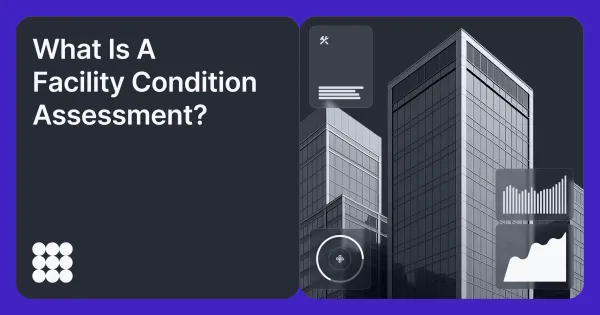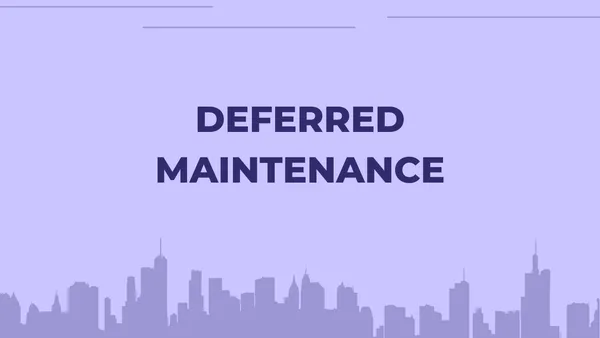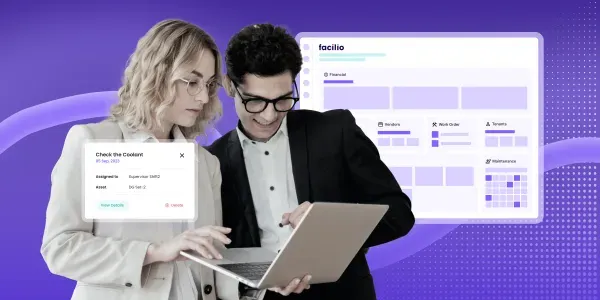
Elevate Your Facilities Management with Integrated Solutions
Imagine a space where the air conditioning cools down the room just before a big meeting, the lights know when to brighten, and maintenance issues resolve themselves before anyone notices.
This is perfect Integrated Facility Management (IFM) – a synchronized dance of operations where everything works like a well-rehearsed performance. As a facility manager, you are the conductor, ensuring everything plays harmoniously.
But harmonious is seldom the word that comes to mind, is it not? The day-to-day lives of your facilities management teams across locations are vastly different. Keeping the symphony tuned in for them is more like herding cats on a rollercoaster.
By the end of it, you’re drained, your team’s overworked, and you might as well throw in a "Do Not Disturb" sign because your phone’s been buzzing with problems all day.
Key Takeaways
- Inefficient workforce management in facility management leads to a cascade of problems, including overworked employees, dissatisfied clients, increased costs, and a lack of oversight.
- Legacy CAFM systems are often reactive and lack the integration and automation needed for modern facility management.
- Connected CAFM solutions offer a centralized platform for optimizing workforce management, resource allocation, and processes while also providing valuable data insights.
- Key features of effective CAFM solutions include intuitive interfaces, mobile access, scalability, integration capabilities, and predictive maintenance functionalities.
- Real-world examples demonstrate how organizations have leveraged CAFM to achieve significant improvements in efficiency, cost management, and tenant satisfaction.
- Investing in CAFM technology empowers facility management teams, streamlines operations, and ultimately drives business success.
The elevator breakdown could have been avoided
Rostering challenges
Last Wednesday, Lisa, a facilities manager, faced a major issue, one of the building's key elevators broke down during peak hours.
Unfortunately, Jake, the only technician certified for that specific model, was scheduled elsewhere. The team struggled to find a replacement without him, but no one on duty had the expertise. What seemed like a simple rostering gap quickly escalated.
Unavailable technicians
As the elevator remained out of service, tenants became frustrated. A contractor was called, but they took hours to arrive. By the time the elevator was fixed, the damage to tenant satisfaction was done, with complaints piling up.
Extended time to repair
Without Jake, a fix that should've taken two hours stretched into six, disrupting tenant productivity and overcrowding stairwells. The longer it took, the more work orders piled up, leaving Lisa’s team overwhelmed.
Cost of manpower and coordination
Multiple teams worked inefficiently to resolve the issue. Miscommunication, overtime, and emergency contractor fees led to increased costs. What could have been a quick fix turned into a costly, drawn-out problem, all due to poor scheduling.
The ripple effect
The elevator breakdown triggered a series of operational challenges that rippled across the facility.
Overworked employees
Jake, the only technician skilled in elevator repairs, was already stretched thin. By the time he returned, the backlog of work orders had grown. Constant pressure and understaffing led to burnout, lowering team efficiency and increasing the risk of losing top talent like Jake.
Dissatisfied clients
Tenants grew frustrated as the extended downtime disrupted their day. Slow response times eroded trust, and client satisfaction took a hit as issues lingered, potentially risking tenant retention and contracts.
Rising costs
What could have been a minor fix turned into a costly repair. Emergency contractor fees and overtime hours piled up, while delays increased the chance of future breakdowns, further inflating costs and draining resources.
Management blindsided
Without a clear, centralized system, tracking and resolving maintenance issues became chaotic. Lisa, the facility manager, lacked the real-time data needed to address inefficiencies and prevent recurring problems, making it harder to improve operations.

Such situations are very common, especially if you are still using legacy systems and processes.
A McKinsey report says that 40% of the workers they surveyed felt that they spent at least a quarter of their week on manual, repetitive tasks. So not only do you run the risk of increasing the number of dissatisfied employees, but you are also impacting profitability.
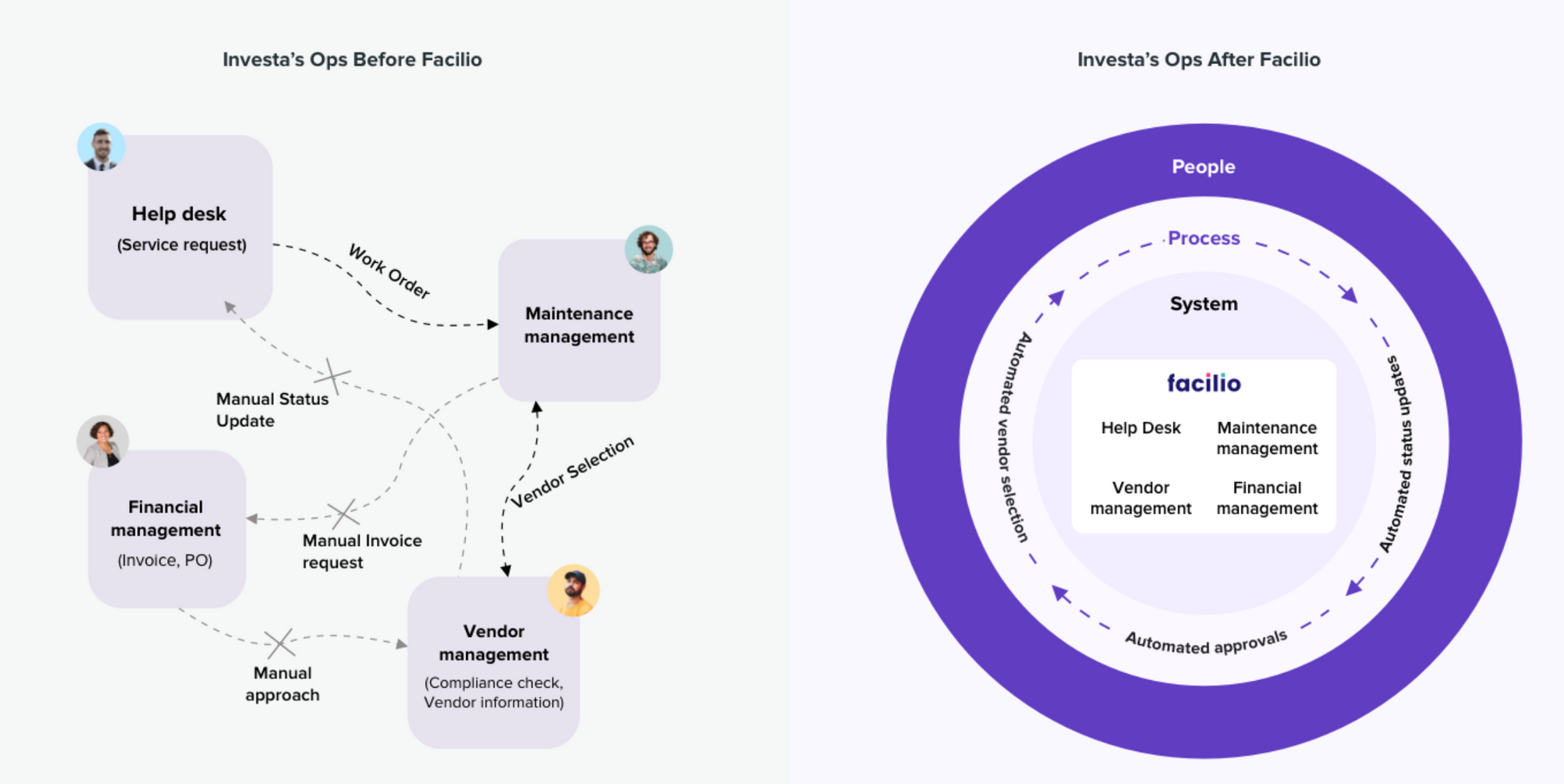
See how Investa reduced service costs while improving tenant satisfaction with Facilio
Connected CaFM to the rescue
What your teams need is intuitive tools and technology that can streamline activities, automate those that are repetitive, help your teams better utilize their workday, and accomplish a lot more.
Beyond this, these tools should help you scale and bring in an overall agility to your operations. Solutions like Computer Aided Facility Management (CAFM), are built to fuel facilities management services to buckle up and raise the bar.
Connected CAFM: Modernizing facility management beyond legacy ools
We are in an era where using enterprise software is as simple as texting—it’s instant, easy to use, and powered by the latest technologies. On the contrary, 56% of O&M stakeholders have issues surrounding operations and maintenance technology and digital transformation.
The current CAFM is limited to a technician-only focus, with little to no automation or integration with the rest of the O&M tech stack.
We need to make CAFM as powerful, integrated, and easy to use as ServiceNow and Salesforce in the enterprise world.
Connected CAFM improves efficiencies and changes how user experiences are delivered by connecting people, processes, and systems. Here are some ways:
- Instant alerts: Lisa is immediately notified of the elevator breakdown via her CAFM system, providing a real-time view of the problem. The tenants are notified in real time through the app on the progress made.
- Effortless work orders: She quickly creates a detailed work order and assigns it to the right technician with just a few clicks, ensuring the issue is addressed promptly. The technician and team get all the details as an instant alert and know what to do next with the necessary documentation in hand.
- Seamless coordination: The CAFM system ensures that the technicians, security, and building management teams are all aligned, leading to a fast and efficient response.
- Real-time updates: Lisa monitors the repair progress in real-time from a central dashboard, staying on top of the situation with minimal stress.
- Automated documentation: The system automatically logs the incident, generating a full report for review and helping prevent future breakdowns.
- Insightful reports: Post-incident data provides valuable insights, allowing Lisa to spot trends and improve elevator maintenance strategies.
By leveraging a CAFM system, Lisa turns what could have been a chaotic and costly delay into a smooth, well-coordinated operation, keeping tenants happy and minimizing disruptions.
Her team felt empowered and in control.
Instead of reacting to crises, they were ahead of issues with real-time data and clear communication. Reduced pressure and streamlined workflow allowed the team to focus on more critical tasks rather than firefighting every small problem.
Stress levels drop, morale rises, and the team feels a renewed sense of confidence in their ability to manage the building efficiently.
Lisa can now spend more time on strategic planning rather than being bogged down by constant operational headaches, and her team no longer dreads the next emergency.
Key CAFM features that drive impact
- Intuitive and user friendly interface: Simple to navigate for your whole team.
- Mobile accessibility: Manage from anywhere, keeping you in control on the go.
- Scalablility and customization: Adapts to your growing needs effortlessly.
- Integration capabilities: Connects seamlessly with other systems for a unified management experience.
- Predictive maintenance: Foresees potential problems before they escalate, keeping you ahead.
With the right kind of CAFM solution, you turn every potential crisis into a streamlined response, transforming facilities management into a well-oiled machine.
In summary, a CAFM is not just a tool, it is a critical asset that transforms your facilities management approach from reactive to proactive, enabling your teams to handle situations of any severity effectively, maintain high tenant satisfaction, and keep your operations running seamlessly.
What Facilio does
We go beyond traditional CAFM solutions by offering portfolio-scale visibility and control. Whether you manage a single building or a global portfolio, Facilio provides a centralized platform to:
- Optimising workforce management: We bring all stakeholders (internal and external) into the loop on a single platform. Thus, dissolving silos and help in identifying and fixing process gaps. We facilitate the seamless transfer of relevant information at the right time to the right people
- Optimize resource allocation: Ensure the right technician is assigned to the right task at the right time, across all your properties.
- Standardize processes: Implement consistent workflows and best practices across your entire portfolio, improving efficiency and reducing errors.
- Benchmark performance: Compare performance across different buildings or regions, identifying areas for improvement and best practices to replicate.
Facilitate your team with Facilio
A McKinsey report shows that companies using CAFM systems see a 20% improvement in maintenance efficiency, thanks to better reporting and analytics tools and boost maintenance-labor productivity by 15 to 30 percent.
Empower your team with cutting-edge connected CAFM like Facilio.
A CAFM is like adding a supercharged turbo boost to your operations. Here’s how this tech marvel can make your life easier and your team’s workday smoother:
1. Supercharge efficiency: Imagine ditching those chaotic spreadsheets and clunky systems for a sleek, organized CAFM. It's like trading in your old clunker for a high-speed sports car. Streamline maintenance tasks, manage work orders, and schedule preventive measures all in one place. Your operations just got a major upgrade!
2. Predictive power: Forget the guessing game of when equipment might give up the ghost. CAFM uses data and analytics to foresee maintenance needs, letting you tackle issues before they turn into costly surprises. Think of it as your crystal ball for smooth, hassle-free maintenance.
3. Cost savings galore: Who doesn’t love saving money? A CAFM helps you dodge unexpected repair bills and extends your equipment’s lifespan. It’s like having a built-in insurance policy against those dreaded breakdowns, keeping your budget in check.
4. Data-driven decisions: With all your maintenance data neatly organized, making informed decisions is a breeze. It's like having a detailed roadmap for your maintenance journey, guiding you to the most efficient and cost-effective solutions.
5. Boost team morale: No more digging through piles of paperwork or dealing with disorganized work orders. A CAFM makes your team’s job smoother and more enjoyable. Happier team members mean better performance and fewer headaches for everyone.
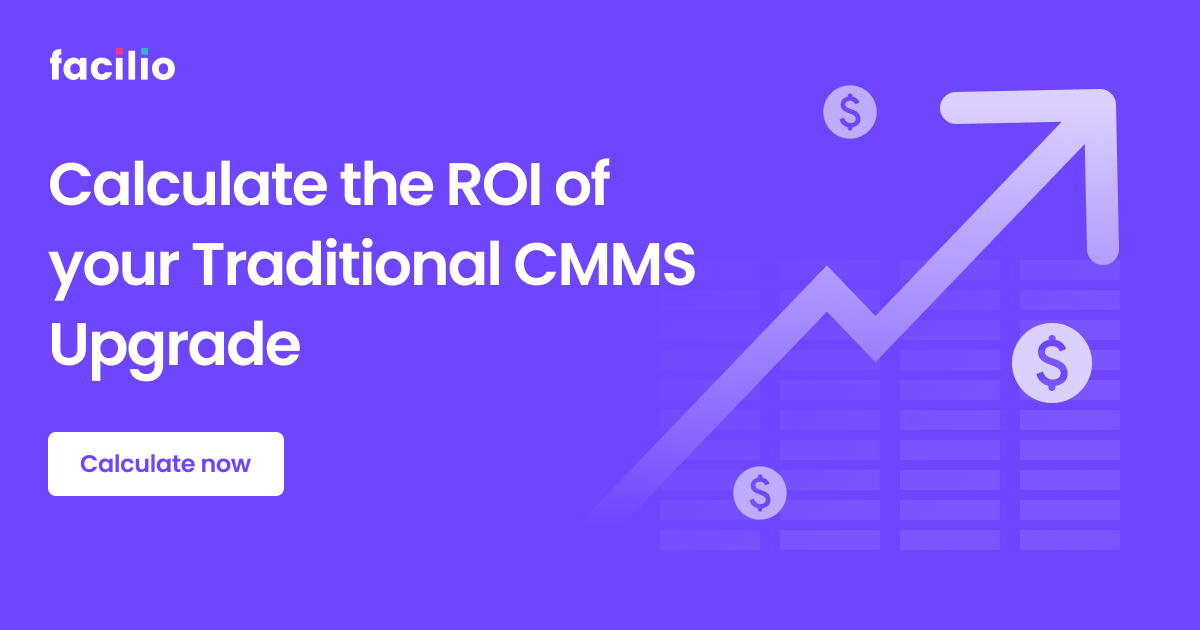
Pssst... Check out Facilio's ROI calculator to see how much you could actually save!
Investing in a CAFM isn’t just about modernizing maintenance, it’s about transforming your entire operation into a well-oiled machine. Get ready to power up your efficiency, save money, and make your team’s day a little brighter!
Companies listed below have implemented CAFM software and the result:
- United States Postal Service (USPS) adopted CAFM to streamline work order management, track assets, and improve preventive maintenance practices. This led to a 25% reduction in maintenance costs and improved asset management.
- Walmart achieved a 10% reduction in maintenance costs and improved asset uptime by 25%. The CAFM also provided valuable data insights that helped Walmart in strategic planning and improving store performance.
- Cargill reported a 20% reduction in maintenance costs and a significant decrease in equipment downtime
These real-life examples demonstrate how various organizations have leveraged CAFM to address specific challenges, optimize maintenance operations, and achieve significant improvements in efficiency and cost management.
By leveraging advanced technology, you can not only enhance your operations but also create a more engaged and efficient workforce. When your team is well-supported and tech-enabled, they can provide exceptional service, which translates to higher tenant satisfaction.
The effect
Satisfied tenants contribute + strong market reputation -> boosts your credibility. As your reputation grows, so does your ability to deliver outstanding service to your clients, driving growth, profitability, and overall customer delight.
In essence, investing in technology and maintaining a focus on operational excellence leads to a cycle of success, benefiting both your team and your tenants, and ultimately driving your business forward.
Check-in
- The current technology we are using is hindering my team's potential
- I am losing clients or dealing with frustrated clients due to slow response times and lack of transparency.
- My exceptional team feels overworked and undervalued.
If most of your answers are yes or maybe then it is time to consider investing in a Connected CAFM like Facilio.
More from Facilio














